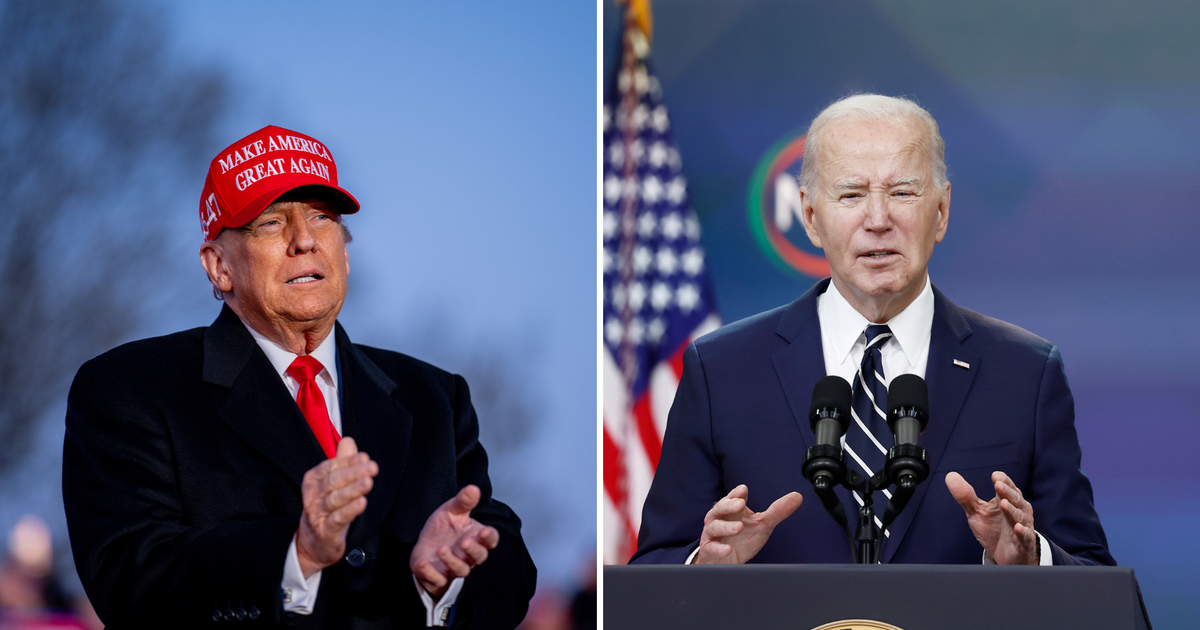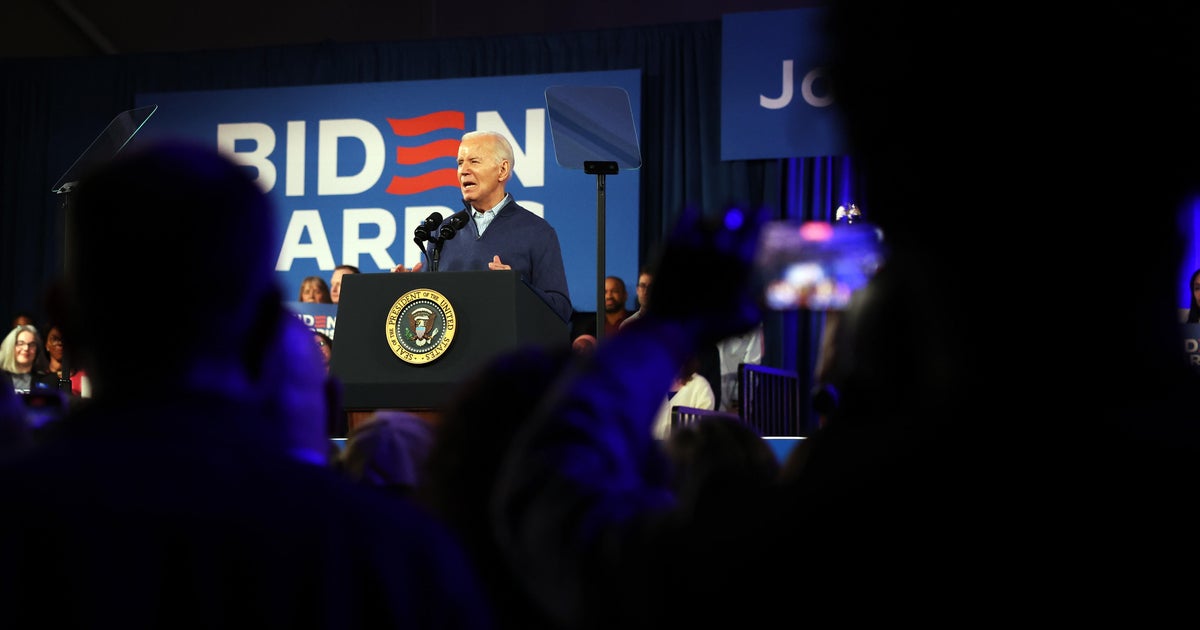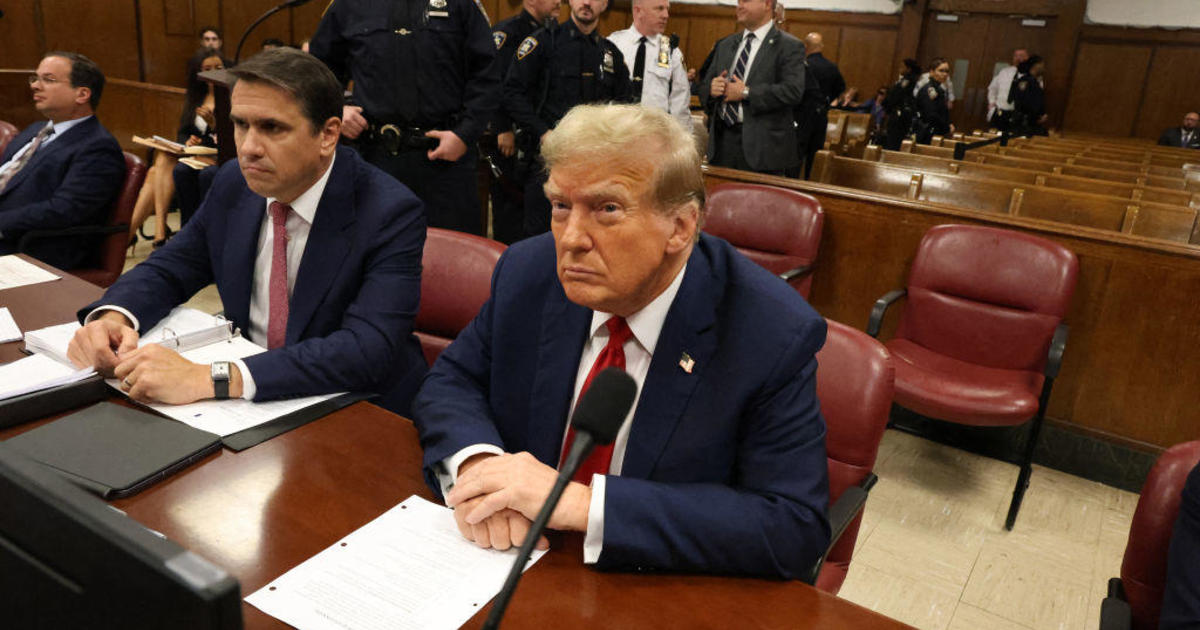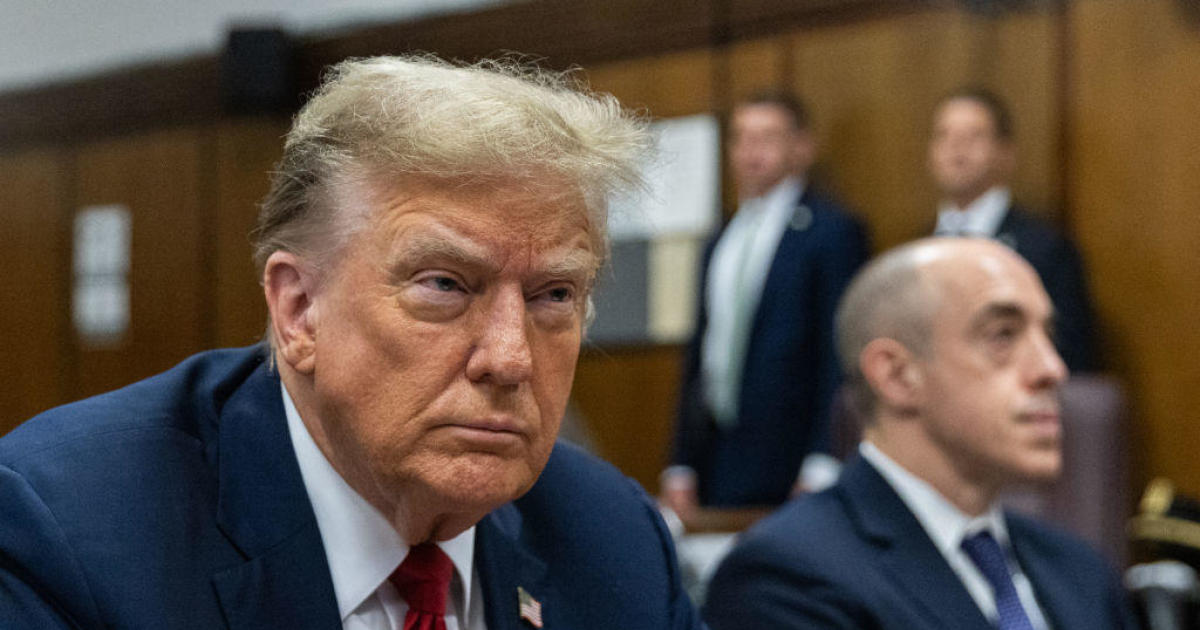The Mueller Report: A Turning Point
Special counsel Robert Mueller has been investigating Russian interference in the 2016 presidential election for nearly two years and Sunday, America finally learned at least some of his findings: In a letter to congressional leaders, Attorney General William Barr quotes the report as saying, "The investigation did not establish that members of the Trump Campaign conspired or coordinated with the Russian government in its election interference activities."
But there are still many unanswered questions. Mueller didn't make a determination as to whether Mr. Trump obstructed the investigation, but Barr said there was insufficient evidence to establish that the president committed obstruction of justice. Democratic lawmakers continue to investigate, and say the full report must be made public.
Why was the special counsel appointed? And why did American voters and elected officials alike come to question if the president of the United States colluded with a foreign government?
The Hacks
It all started with a hack. During the 2016 Democratic National Convention, Russian hackers gave WikiLeaks 20,000 emails stolen from the Democratic National Committee, which WikiLeaks then released. They included private communications of Hillary Clinton's campaign staff, notably Clinton campaign chair John Podesta, emails that continued to be leaked until just prior to election day.
The hackers were intelligence officials working for the Russian government, according to a U.S. indictment, which led some commentators to dub the hack and interference in a U.S. election as "an attack."
Only months earlier, U.S. intelligence agencies discovered George Papadopolous, a Mr. Trump campaign aide, had spoken to an overseas contact about his knowledge of Moscow having acquired emails damaging to Hillary Clinton's campaign. Papadopolous was indicted for lying to the FBI, pleaded guilty and served a short jail sentence.
Roger Stone, a self-proclaimed "dirty trickster" and longtime friend of Donald Trump, has since been indicted by federal agents for allegedly lying to Congress about his communications with WikiLeaks. Stone has pleaded not guilty and currently faces trial for making false statements to Congress, obstruction and witness tampering. The group of Russian hackers who carried out the plot have also been indicted.
Spy Games
The Russian email hack of the DNC was only one part of an involved and coordinated campaign to interfere with the 2016 U.S. election, one spearheaded by the dissemination of false information aimed to influence millions of American voters.
The Russian election interference was traced back to a physical "troll factory" in St. Petersburg that had been set up by Russian agents to be a digital headquarters for their efforts to create social media accounts that would incite division and spread false information among the American voting public.
Starting in 2014, the Russian digital operation, which employed hundreds of people and went by the name Internet Research Agency (IRA), began to track U.S. political trends and create hundreds of fake webpages and social media accounts, where it posted false political advertisements and denigrated certain candidates, notably Hillary Clinton.
Tradecraft
Russian election interference did not end on the internet. On June 9, 2016, Donald Trump Jr., Jared Kushner, and campaign chairman Paul Manafort met at Trump Tower with Natalia Veselnitskaya, a Russian lawyer with ties to the Kremlin, at her request. Trump Jr. had been informed by email prior to the meeting that Veselnitskaya might be able to offer him compromising information on Hillary Clinton, an allegation which he later denied and then admitted.
U.S. intelligence agencies also discovered Mr. Trump's first attorney general, Jeff Sessions, met with Russian Ambassador Sergey Kislyak twice during the 2016 campaign.
Paul Manafort was Mr. Trump's former campaign chairman and federal investigators uncovered his lobbying work on behalf of former Ukrainian President Viktor Yanukovych. They also discovered that on August 2, 2016, Manafort shared polling data with Russian operative Konstantin Kilimnik.
Manafort has been sentenced to serve more than seven years in prison stemming from guilty verdicts in two separate cases — one for tax fraud and bank fraud relating to his work in Ukraine, and another for conspiracy against the United States and conspiracy to obstruct justice. Manafort faces additional charges by prosecutors in New York relating to mortgage fraud, conspiracy, and falsifying business records.
Michael Flynn and the FBI
Before taking the oath of office, Mr. Trump had been warned by President Barack Obama against hiring Michael Flynn. Flynn worked under Obama as director of the Defense Intelligence Agency from 2012 to 2014, when he was fired.
Mr. Trump chose Flynn to be his National Security adviser, but had to force him to resign weeks into his presidency after it was revealed Flynn lied to the FBI about his contacts with Russian foreign minister Sergey Kislyak during the transition and his business ties to foreign governments. Flynn has since pleaded guilty to lying to the FBI.
After allegedly telling FBI Director James Comey privately that Flynn "is a good guy," and saying he hoped Comey "can let this go," Mr. Trump fired Comey on May 9, 2017, setting off a chain of events that would change the course of his administration.
When asked by NBC News' Lester Holt why he fired Comey, Mr. Trump answered, "When I decided to just do it, I said to myself, I said, 'You know, this Russia thing with Trump and Russia is a made-up story.'"
Former FBI Director Robert Mueller was appointed special counsel in wake of the Comey firing, where he was given the broad mandate to investigate "any links and/or coordination between the Russian government and individuals associated with the campaign of President Donald Trump; and ... any matters that arose or may arise directly from the investigation."
Andrew McCabe, FBI acting-Director at the time of the Comey firing, would later tell "60 Minutes" he briefly discussed whether there were the votes in the cabinet for invoking the 25th Amendment with Deputy Attorney General Rod Rosenstein, a complex constitutional procedure designed to remove the president from office in the event that he or she "is unable to discharge the powers and duties of his office." In a statement, The Justice Department said, "As the Deputy Attorney General previously has stated, based on his personal dealings with the President, there is no basis to invoke the 25th Amendment, nor was the [deputy attorney general] in a position to consider invoking the 25th Amendment."
All the President's Men
With the special counsel's investigation growing and James Comey's Senate Intelligence Committee testimony emboldening Democrats, the White House hired a powerful legal team to defend Mr. Trump.
Lawyers Ty Cobb, John Dowd and Jay Sekulow were brought in to assist White House Counsel Don McGahn, with Cobb publicly stating his belief that the Mueller investigation would be wrapped up early. After Cobb, Dowd, and McGahn departed, Emmet Flood, a legal veteran from Bill Clinton's impeachment defense, was added along with Rudy Giuliani, who proceeded to make headlines on Sunday morning talk shows, at one point telling NBC's Chuck Todd that "Truth isn't truth."
Through it all, Trump and his defense team maintained his innocence, stating alternatively that there was "no collusion," to "collusion is not a crime" to "there is no evidence Donald Trump knew anything."
The Fixer
No member of Donald Trump's political orbit generated more controversy than Michael Cohen, the president's former personal attorney and self-proclaimed "fixer." Cohen has claimed he and Trump coordinated hush-money payments to two women, adult firm star Stormy Daniels and Playboy model Karen McDougal, who each claim they had affairs with Trump, and that these payments were made to influence the 2016 election. Cohen pleaded guilty to breaking campaign finance laws in connection with these payments.
Cohen has also claimed he tried to cut a deal for the building of a Trump Tower in Moscow during the 2016 election, before that fell apart. In blockbuster testimony to Congress in February, Cohen publicly accused Trump of criminal conduct and racism, calling him "a con man" and "a cheat."
While Cohen begins a three-year prison sentence in May for violating campaign finance law, his allegations remain at the center of an ongoing investigation being conducted by the U.S. Attorney's office in the Southern District of New York, which is investigating Mr. Trump's alleged campaign finance violations, Trump Organization financial dealings, and possible illegal donations to the Trump inaugural committee.
What's Next
Now that the conclusions of the Muller report have been released, Democrats and Republicans are bracing for their next steps in a bitter political dispute. House Judiciary Chairman Jerry Nadler, D-New York, has opened up an investigation into President Trump's administration, seeking emails, memos, and financial documents from 81 entities and individuals connected to Trump.
Republican Sen. Lindsey Graham said it was time for the country to "move on" and "get ready to combat Russia" in the 2020 elections. Rep. Jim Jordan, an ally of Mr. Trump's in the House, simply tweeted: "No collusion! No obstruction! It's time to move on."



